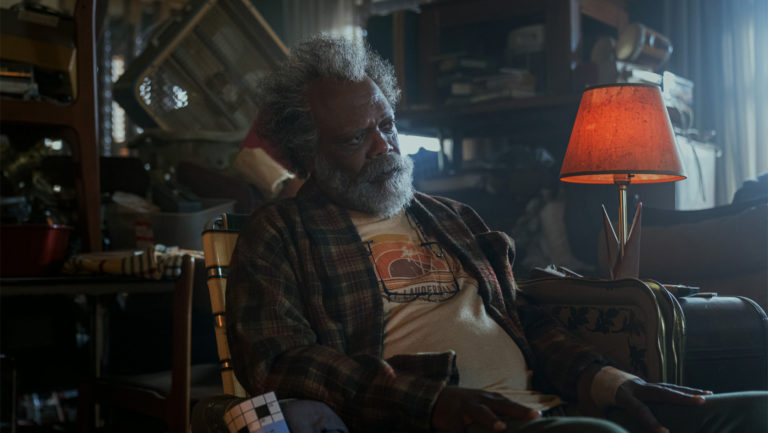
Samuel L. Jackson’s performance in the Apple TV+ limited series, The Last Days of Ptolemy Grey, is another tour-de-force in a long and remarkable career.
The drama, which debuted Friday, shows Jackson as the titular 93-year-old widower, who is suffering from dementia and dependent on family and friends (Marsha Stephanie Blake and Dominique Fishback) to meet his most basic needs when the mysterious Dr. Rubin (Walton Goggins) offers him an experimental medical treatment that restores his memory, enabling him to once again gain control of his life as he investigates the murder of his beloved nephew, Reggie (Omar Benson Miller.)
There is a catch, though: the rejuvenation is temporary and Ptolemy has only a brief respite before returning to his sad state of frailty and confusion where fractured visions of his dead wife Sensia (Cynthia McWilliams) are all he has to remind him of happier days.
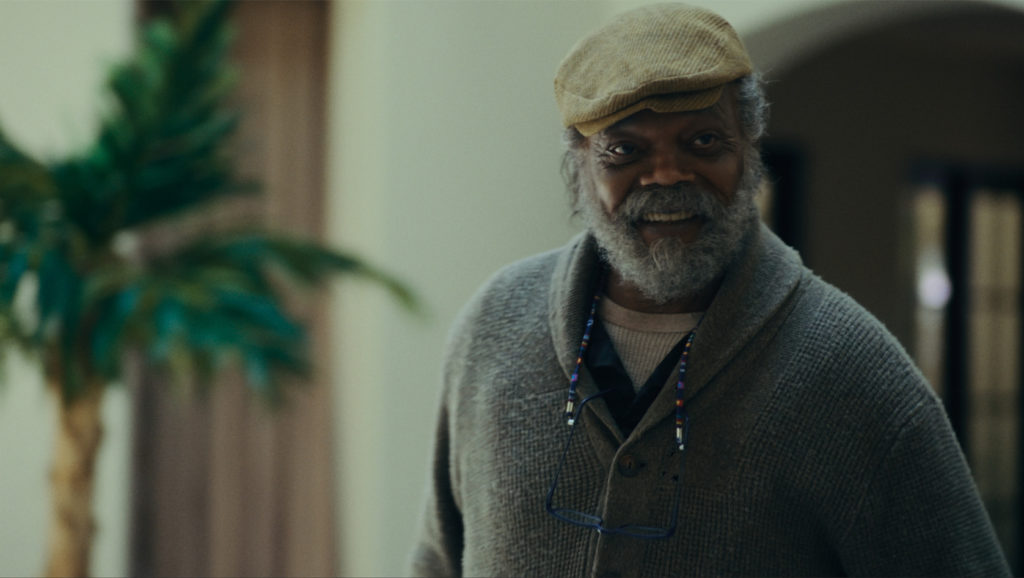
Book author Walter Mosley and series stars McWilliams, Blake and Miller recently spoke about the project to Cinema Daily US via Zoom.
Q: Did it take a leap of faith to allow your novel to be adapted for television?
WM: That’s a good question. I’m trying to think of anything in an artist’s life that’s not a leap of faith and I don’t think there is anything. But it wasn’t difficult. I learned a long time ago, by doing film, if you choose the right people in the beginning, then you really don’t have to worry. I had Sam Jackson, I had Dominique, I had Walton Goggins, I had all these other people. I had wonderful directors. You’re never promised that things are going to turn out the way you want them to, but I had a really good chance of it.
Q: What was it like seeing your characters come to life on screen?
WM: It was wonderful. It was really, really, really great to see the expression of talent from so many different places and points of view, and to see this really large, mostly black, cast show the wide range of humanity in this working class black community.
Q: What did you think of Sam’s performance?
WM: It was great. Sam’s a great actor. There’s no question about that and this is a really challenging role because he is different people in the same person, like all of us are.
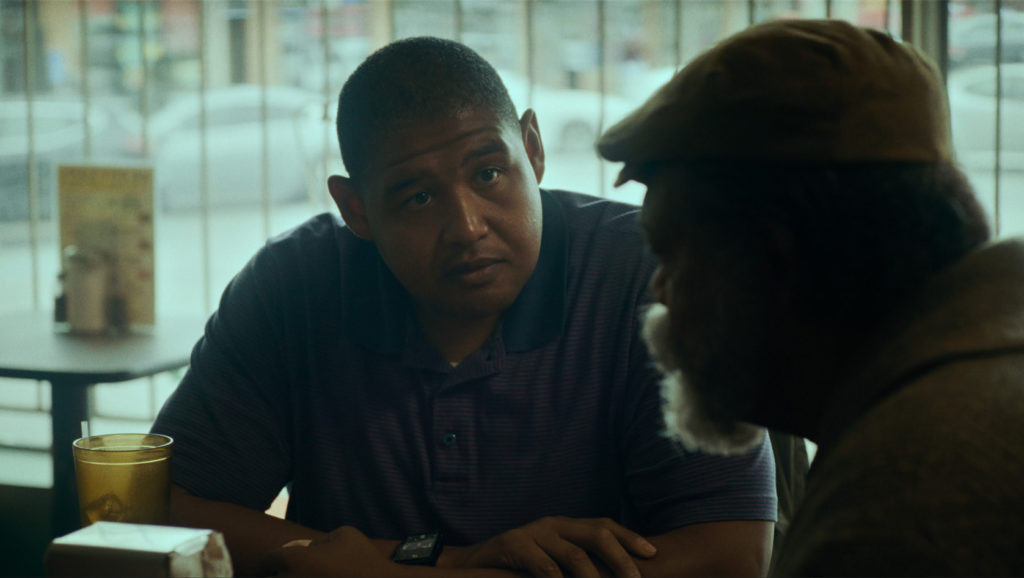
Q: What made this perfect for a limited series as opposed to a movie?
WM: Movies are short stories. It is a very tight arc. Boy meets girl, boy loses girl, boy finds girl again. That’s a movie, right? There’s only so far you can go. This is a story that you needed to be deeply invested in every element of the experience from deep dementia and just about to fall apart to deep dementia and just about to fall apart — but there are so many things that go on in the middle that it was really wonderful to have six hours to tell the story. It’s more than enough.
Q: Do you think viewers will relate to it because so many of them have experienced similar situations with loved ones in their own lives?
WM: I’ve always thought that, ever since I wrote the book. I’m writing about black characters, I have my black, male hero, BUT that doesn’t matter. They could be Chinese, they could be Pygmy, or Pics up in Great Britain. This is something that has happened to humans as long as there have been humans and almost all of us experience it in one way or another.
Q: What does this story say about empathy and how we should treat each other?
WM: I think this talks about how complex family relations are: how some people love you and do the right thing, some people love you and do the wrong thing. Some people don’t care about you, but they’re still your blood and YOU still have to care about them one way or another.
Q: Do you think there is a correlation between detective stories and how memory works?
WM: Detective stories are novels. All novels have a mystery. You don’t necessarily have to have a detective, you don’t necessarily even have to have a crime, but you have a mystery because the people watching are wondering: “What is going to happen? When is it going to happen?” When anybody asks me to explain what plot is, I say, “Plot is the structure of revelation — when you find out what is important to the story that’s going to keep you wondering about that story as I pull you along.” So, for me, every human being is a mystery.
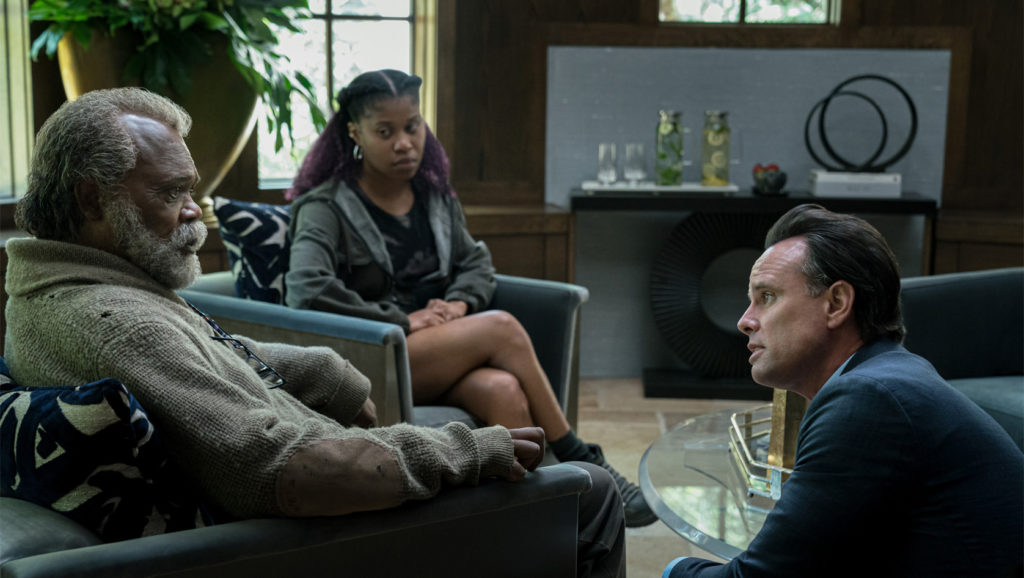
Q: What was it like being part of a project that is so entertaining, but also addresses some weighty issues?
CM: It’s like being a part of something that is everything. It’s like a trifecta of great material, great people and great characters, and then there is this extra bonus of telling a story that just might be impactful and important. Of course, you want to entertain. Of course, you want people to think about the material. But whenever there is an opportunity to provide any sort of solace, comfort [you do it.] I’ve already spoken to some people who after watching it talked about how they had dealt with dementia — caring for a parent or an aunt or a sibling and how this made them feel seen or the feeling [it gave them seeing] this person as not only broken and sort of losing himself, but that we also got to see him as a full human, too. We see his whole story being told, so he wasn’t only this broken man in this lost version of himself, but someone who, even in his dementia, had humor and insight. I think it’s nice when people don’t become their disease. That’s a beautiful thing about the story: even in the parts where he is living with the dementia, we allowed him to be a person and not a condition. I really hope we are able to tell a story with empathy and truth, that also entertains.
Q: How do you see Sensia and does that differ from how Ptolemy remembers her?
CM: The only way that I’ll ever know about a character I play is from the author, what they tell me about her and then, from there, I get to reintroduce myself to her and then I get to fall in love with her and become one with her and make her my own. … Ptolemy idealizes her. He sees her as the most beautiful woman he has ever beheld, which I don’t think was ever really about her being aesthetically gorgeous. I think it was always about what she felt like to him, what she brought out of him and that’s for me how I saw her. I always saw her as first and foremost an unapologetic woman — a woman who lived outside of her time, ahead of her time. Nowadays, we have words for the things she is — a feminist or bisexual or non-binary — in her time she was someone who refused to apologize or explain. She was like: “I am me and I want what I want and I love who I love and I’m going to leave who I want to leave. I don’t have to subscribe to rules.” I loved that about her. Those were the traits that I saw in her. I think that Ptolemy saw the more idealized version of her, but that’s OK because that love that he saw was what allowed him to hold onto her, so that he could be anchored back into reality. There was truth in that because that love was fierce and strong and true.
Q: Did you get to keep the beautiful painting of Sensia that Ptolemy keeps in his home?
CM: I did! It’s over here in the closet. I sat for it and then they went off and [painted] it and then one day I came in and it was on the wall and I was like, “Oh, wow, look at that!” How many people have an oil painting of themselves? Who does that anymore? What a weird thing to sit there!
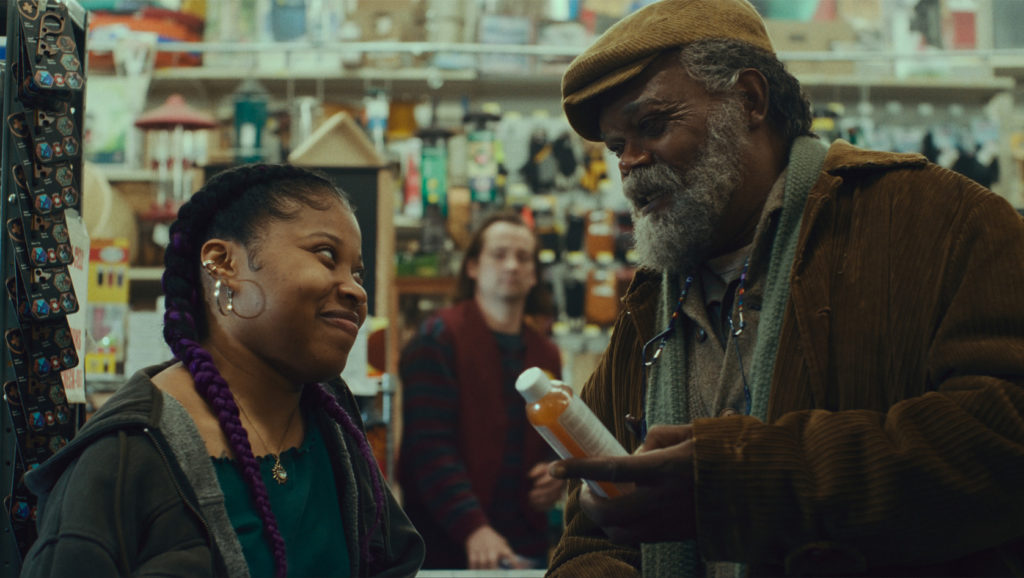
Q: How would you describe your characters and what made you want to play these specific people?
MSB: My word for Niecie is “messy.” But messy in a really beautiful way, a really human way, in a very three-dimensional and not easy to define way, which I think is what we are. We are very complicated. When you start speaking to people, you have an opinion of someone, but when you actually sit down with someone, especially someone of a certain age, and ask them about their story, their lives, you realize there have been many times when they were the villain in someone else’s story or they thought they were the hero and they weren’t or they made a mistake or they regret having made a decision, but they couldn’t go back and change it, so they had to live with it. I feel like that is all of Niecie. That’s just the messiness of life and I love it. It’s real.
OBM: Reggie is a kind soul that may be too kind for this world. … Reggie is a great representation of how this society has taken a stance to treat nice people. It is a product of amoralism and capitalism and I-itis and all of the ills of societies that allow hundreds of thousands of people to live on the street every night and go hungry while millions of tons of food go half-wasted on people’s plates. I think there is a lot of that that Reggie represents [through his murder.] He also represents, on the flip-side, the humanity of people who do selfless acts, so if you buy the bond between him and his uncle, it goes a long way to kick off the story.
Q: Do you think this has the elements of a thriller since Ptolemy is trying to solve a crime and unravel his past in a race against time?
MSB: I was glued to the book. Before I read the script, I read Walter Mosley’s book and I believe I got through it in one evening. I did not put it down. … It’s just really special to be part of a story that’s told by the great storyteller Walter Mosley, starring Samuel L. Jackson, who is also one of the greatest storytellers of all time and then we have this amazing cast of characters and these incredible actors. It’s been a ride the whole time.
OBM: I don’t think the audience now has the tolerance for being preached to and, so, I think that if you actually have a message, then you have to challenge the audience, but you have to bread-crumb them along with classic elements of entertainment and storytelling and we had the great team to put it together.
Read more stories by Karen Butler.
The series comes to Apple TV+ on March 11.
Here’s the trailer of the series.

